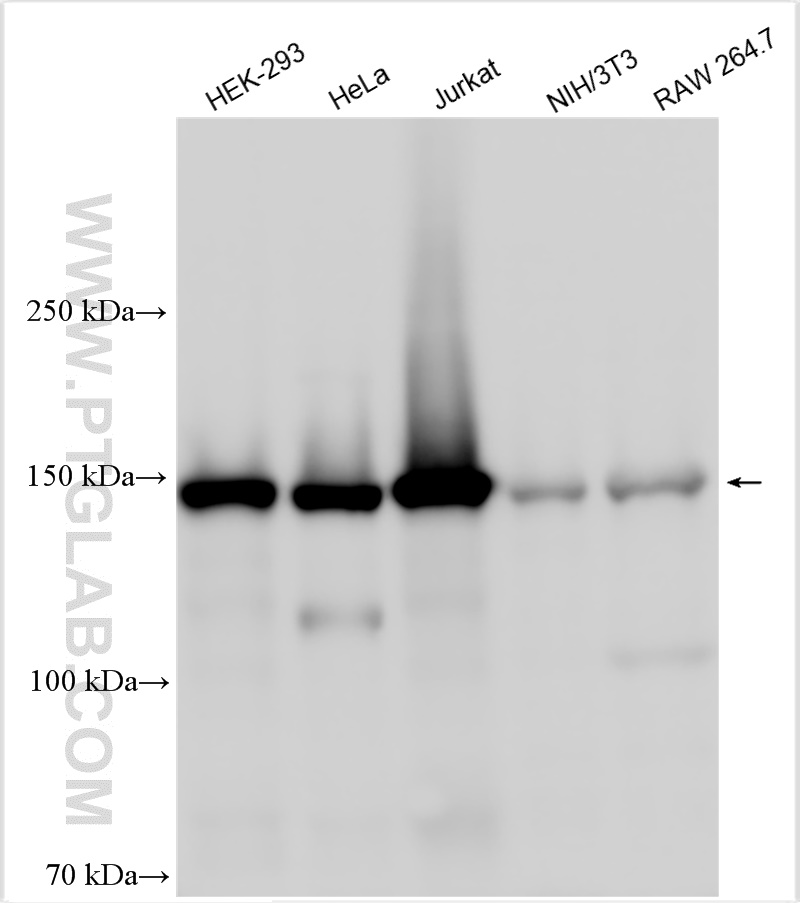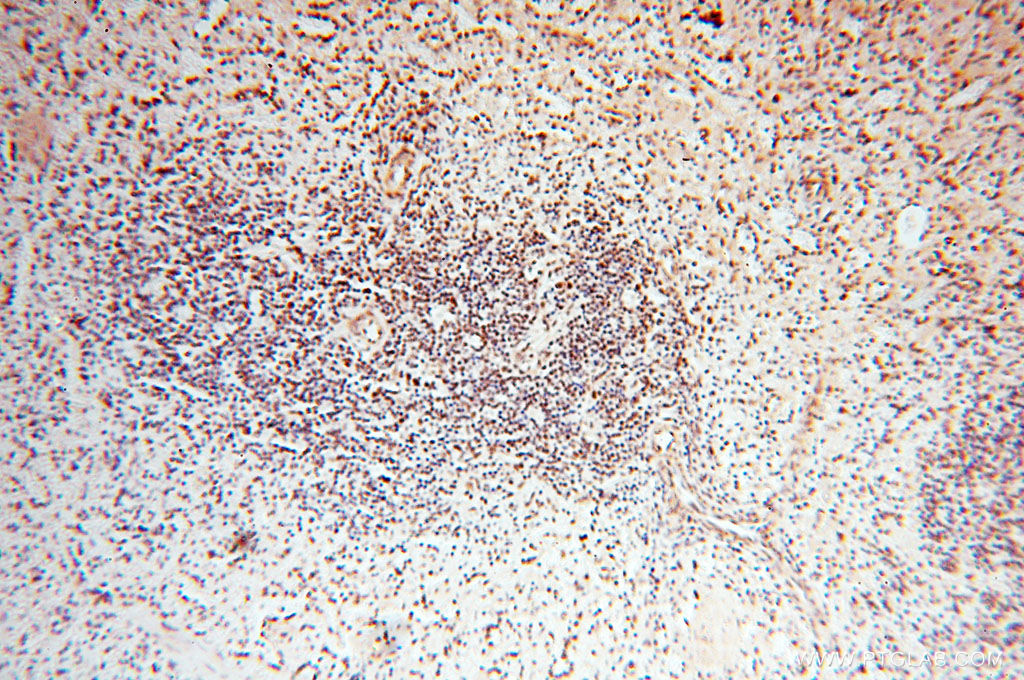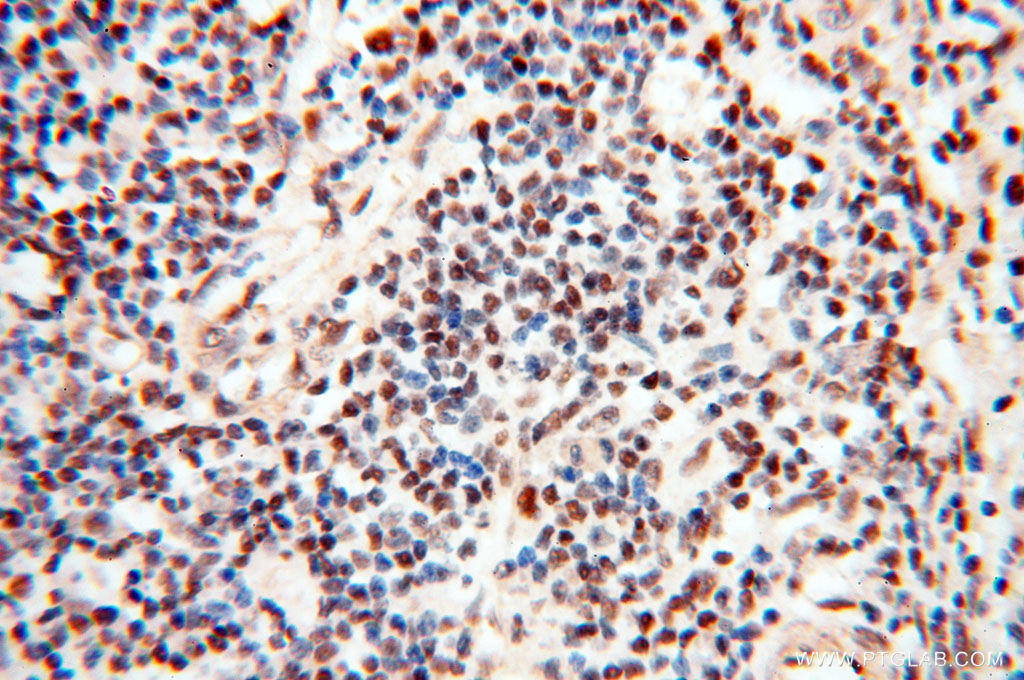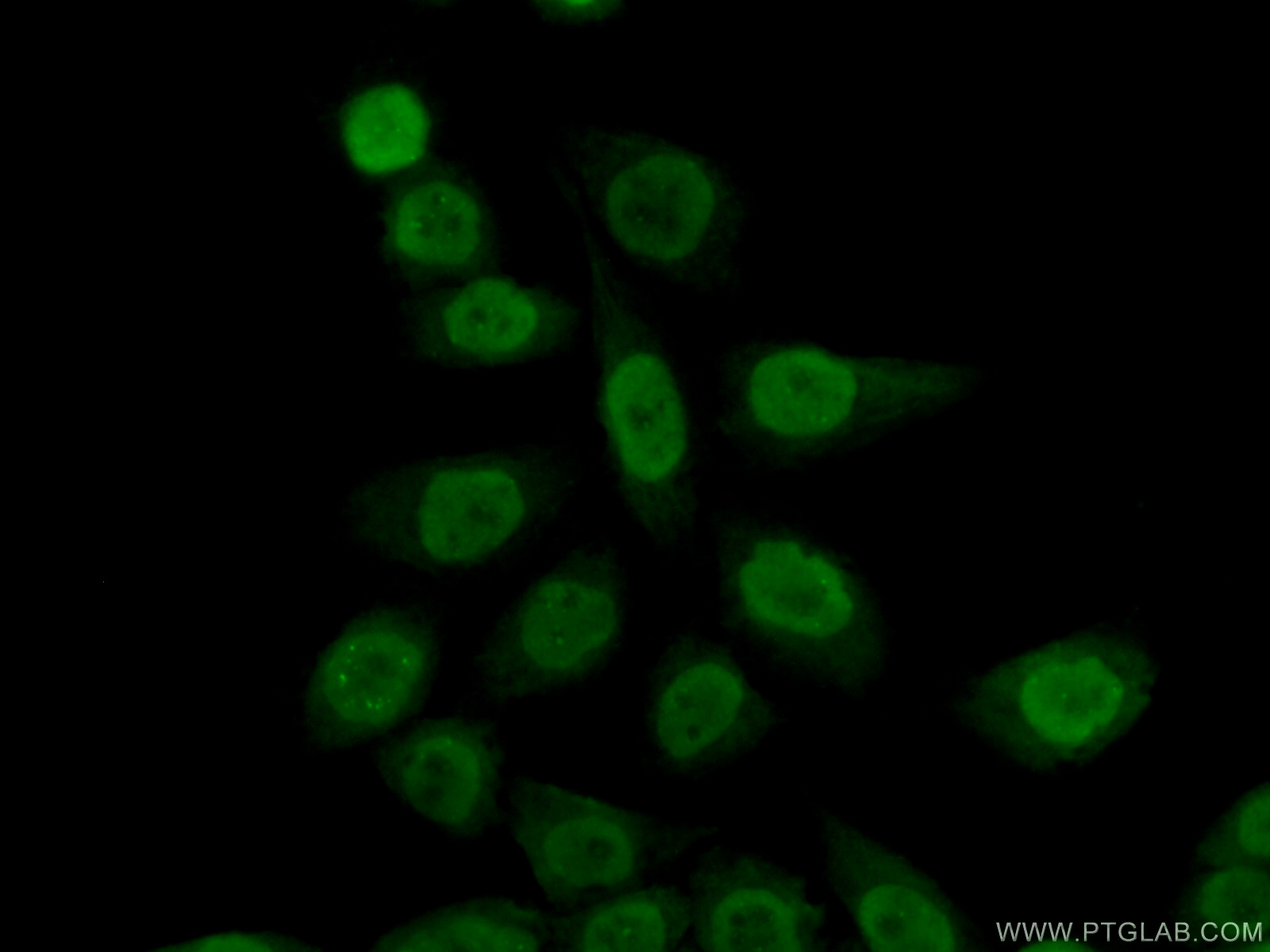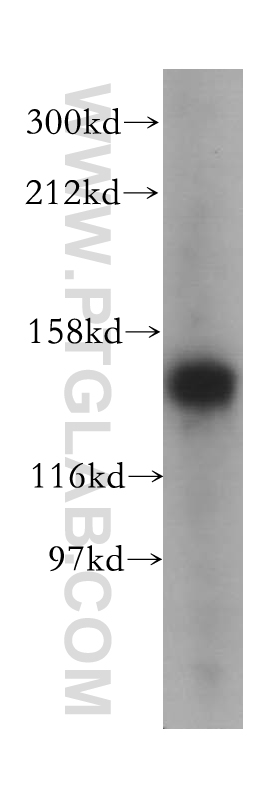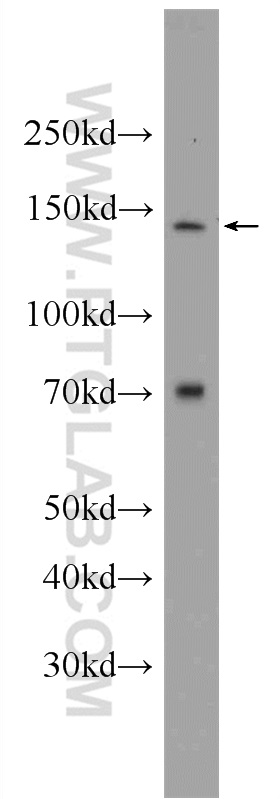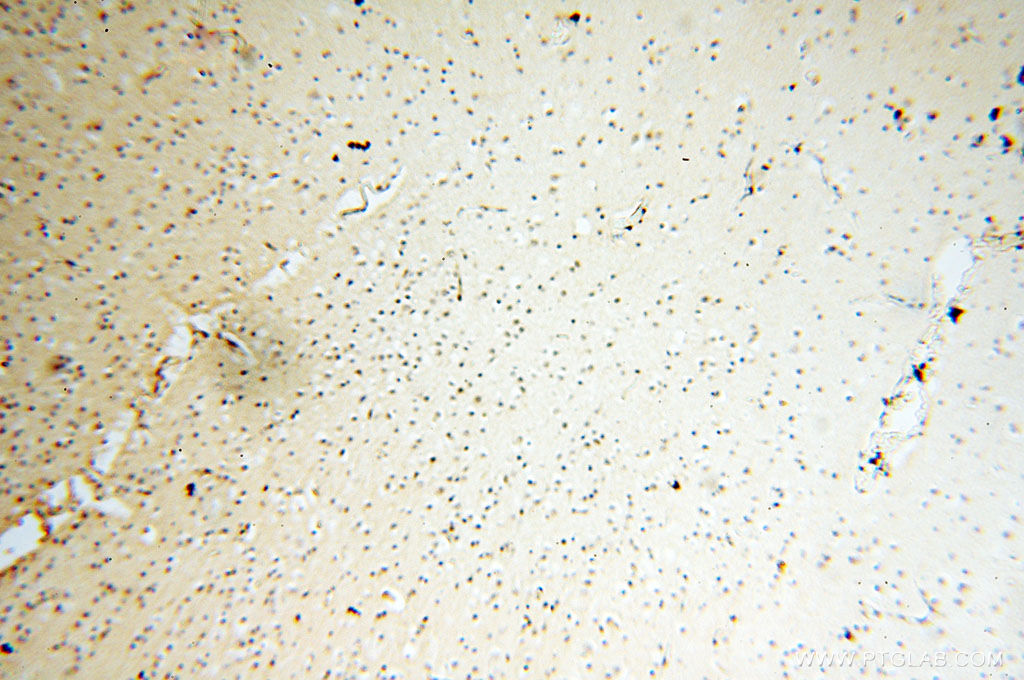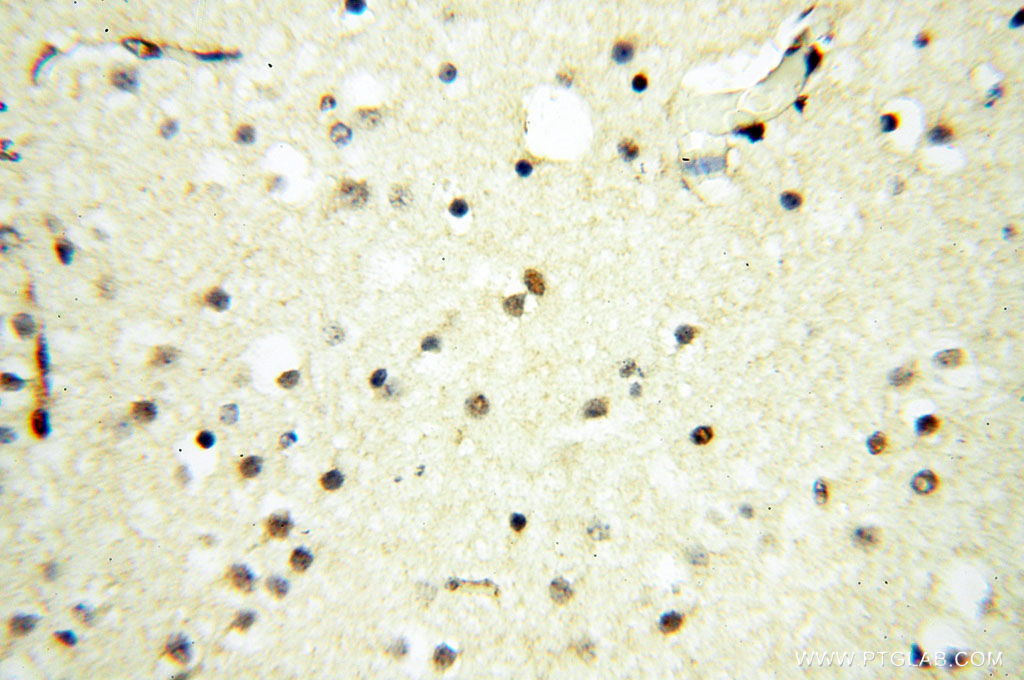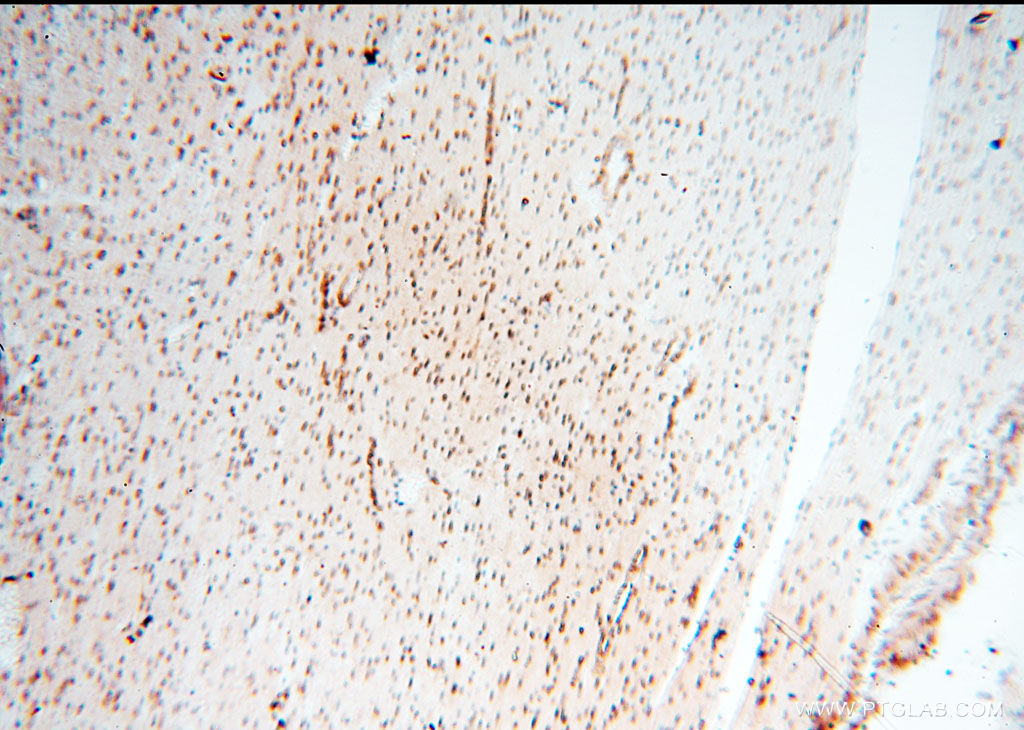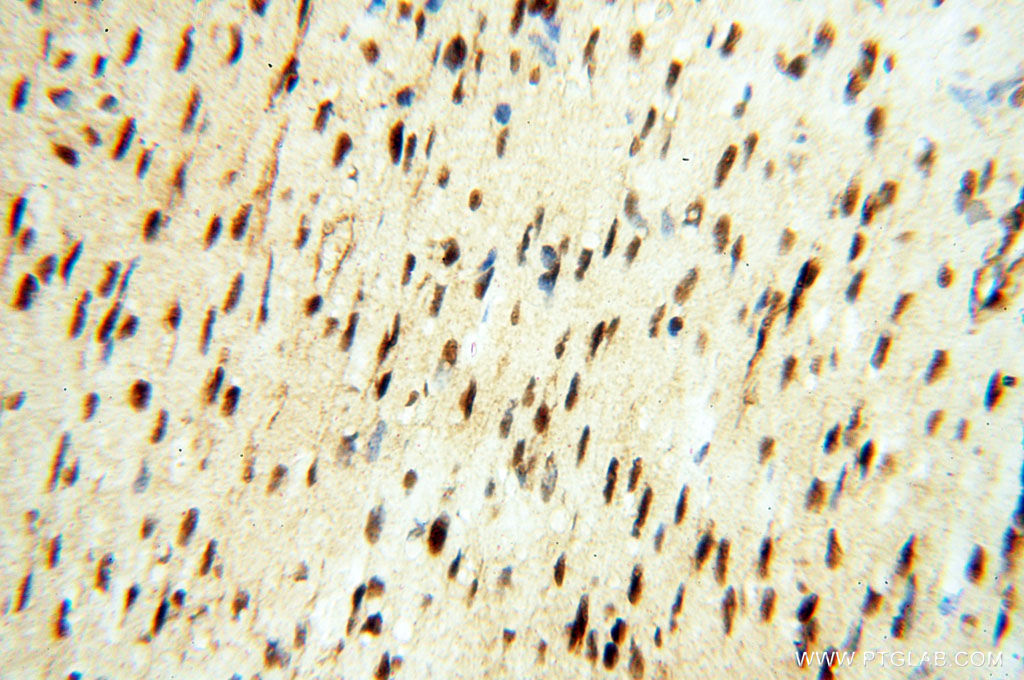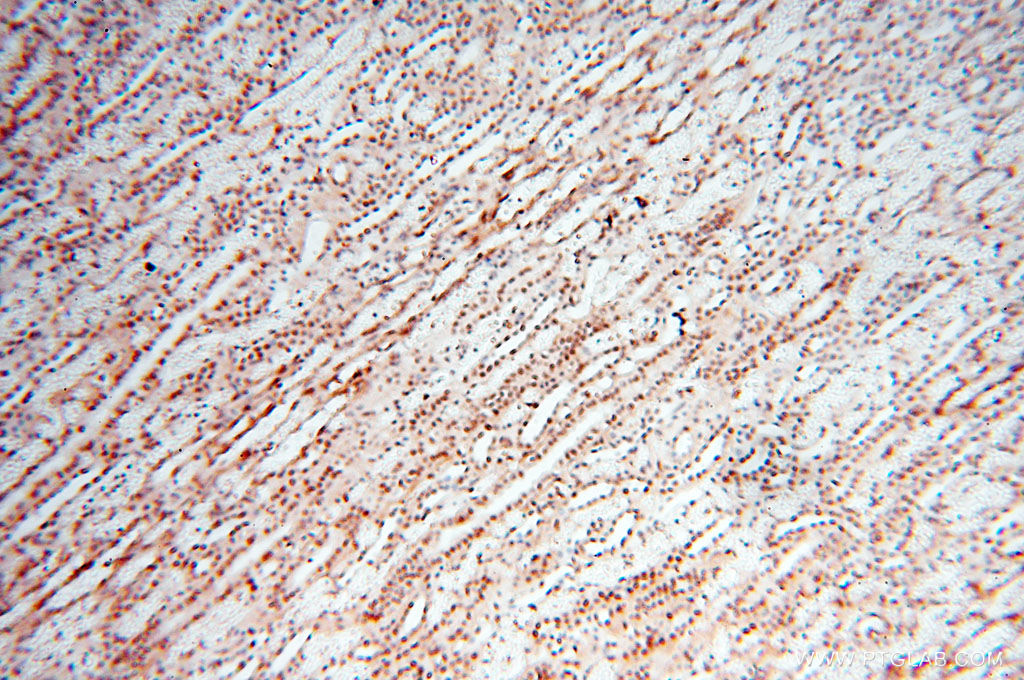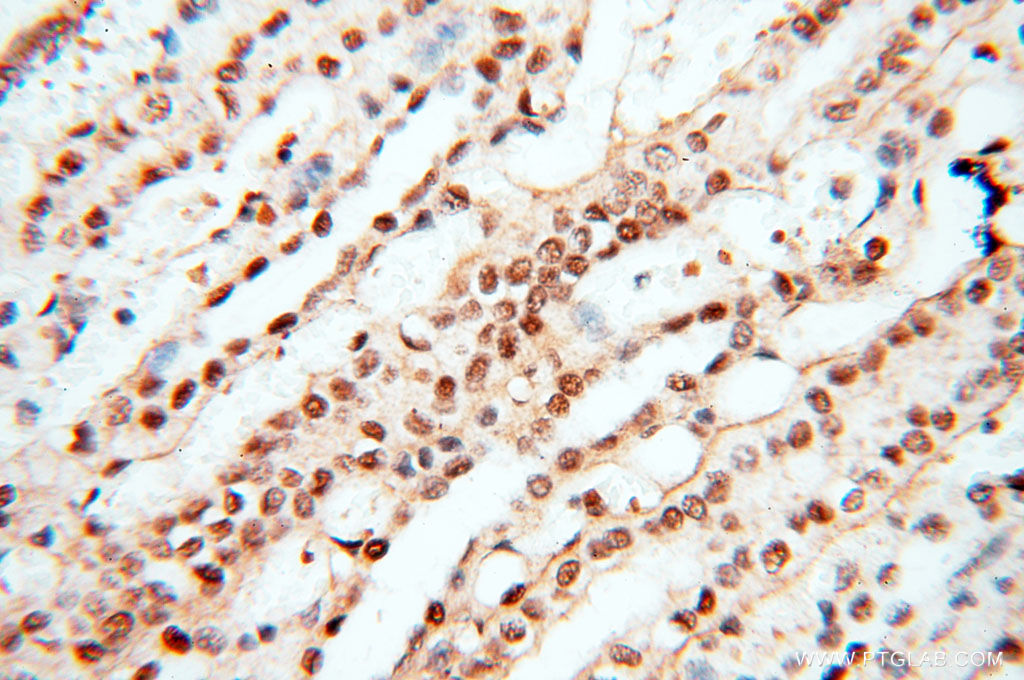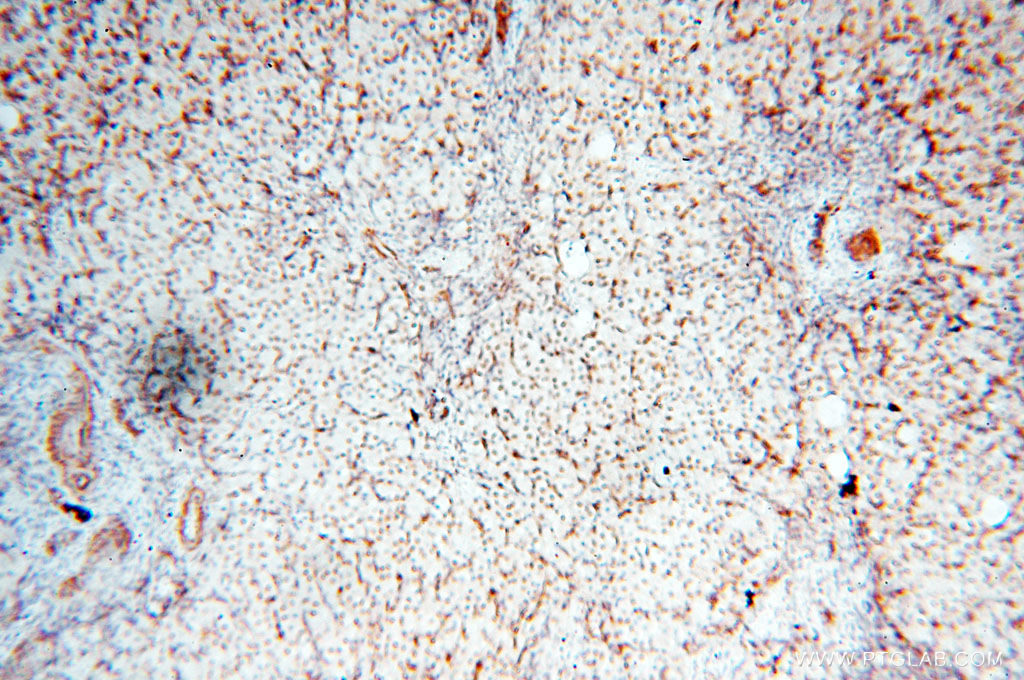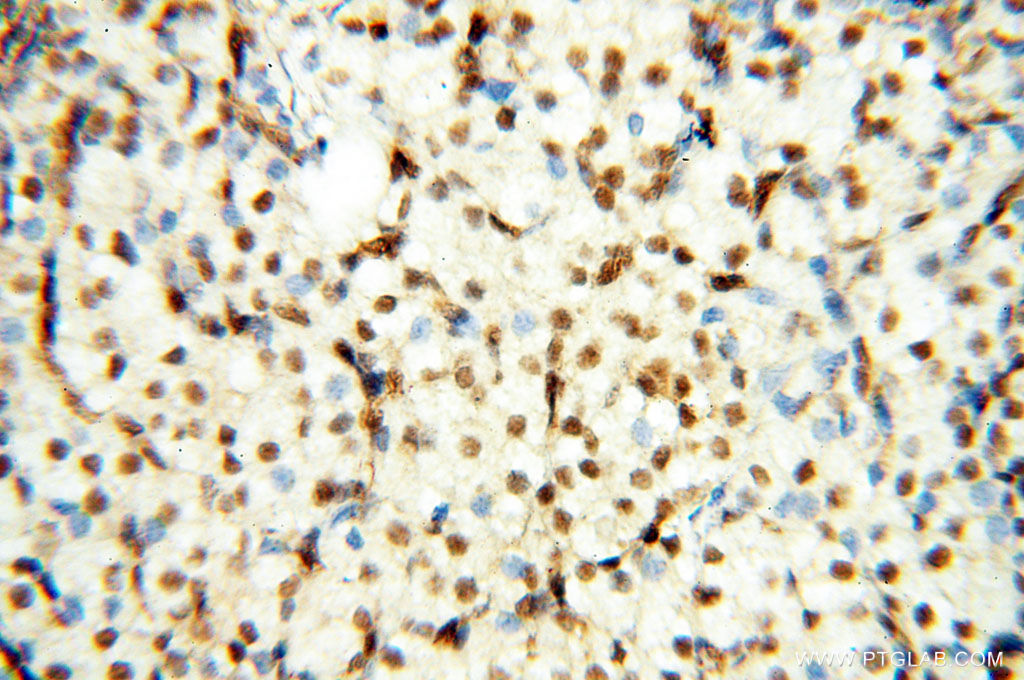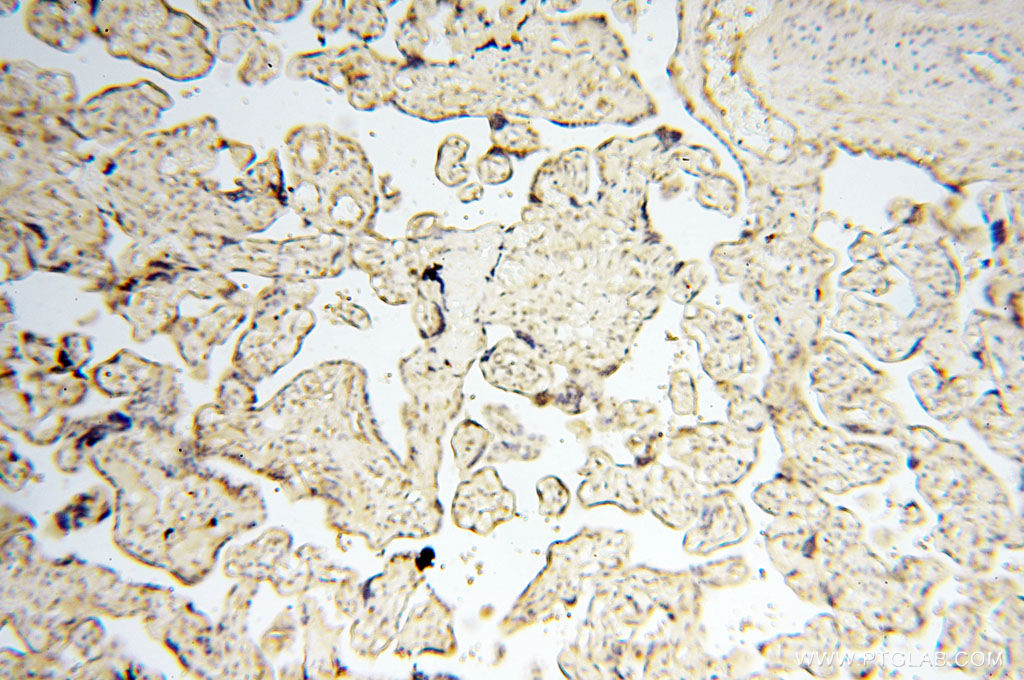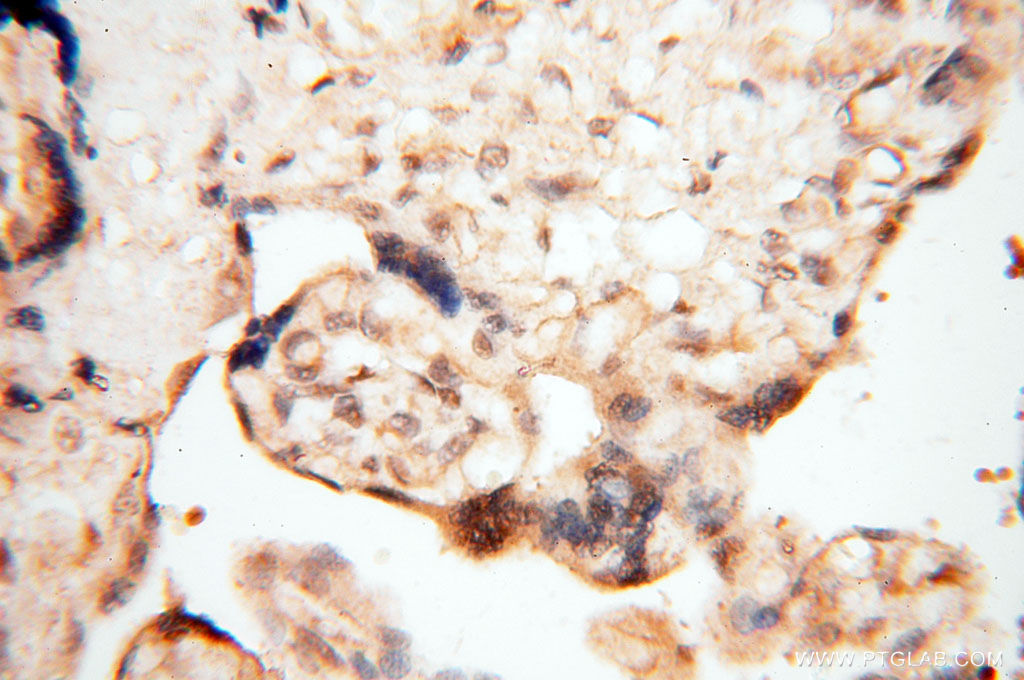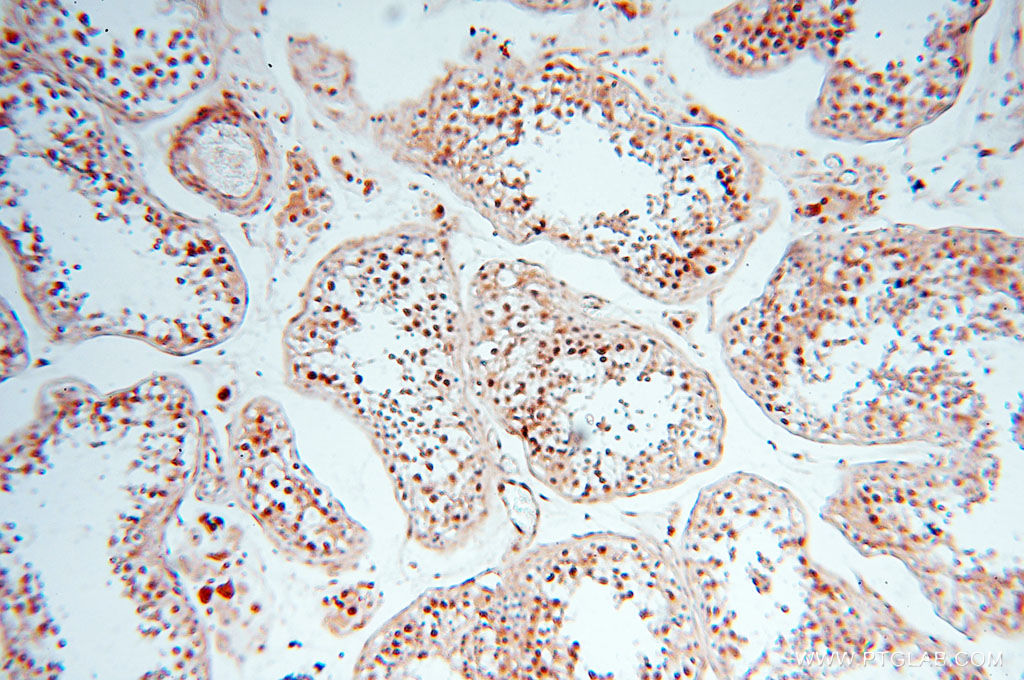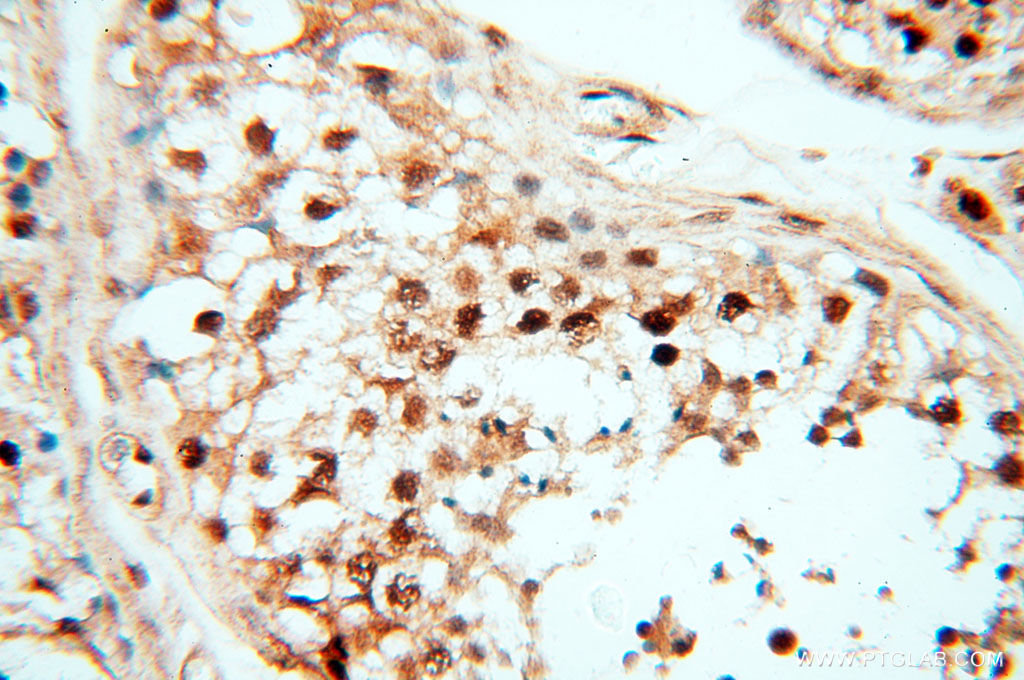验证数据展示
经过测试的应用
| Positive WB detected in | HEK-293 cells, NIH/3T3 cells, A549 cells, HeLa cells, Jurkat cells, RAW 264.7 cells |
| Positive IHC detected in | human spleen tissue, human brain tissue, human heart tissue, human kidney tissue, human ovary tissue, human placenta tissue, human testis tissue Note: suggested antigen retrieval with TE buffer pH 9.0; (*) Alternatively, antigen retrieval may be performed with citrate buffer pH 6.0 |
| Positive IF/ICC detected in | HeLa cells |
推荐稀释比
| 应用 | 推荐稀释比 |
|---|---|
| Western Blot (WB) | WB : 1:1000-1:4000 |
| Immunohistochemistry (IHC) | IHC : 1:20-1:200 |
| Immunofluorescence (IF)/ICC | IF/ICC : 1:50-1:500 |
| It is recommended that this reagent should be titrated in each testing system to obtain optimal results. | |
| Sample-dependent, Check data in validation data gallery. | |
发表文章中的应用
| KD/KO | See 3 publications below |
| WB | See 8 publications below |
| IHC | See 3 publications below |
产品信息
14421-1-AP targets TIMELESS in WB, IHC, IF/ICC, ELISA applications and shows reactivity with human, mouse samples.
| 经测试应用 | WB, IHC, IF/ICC, ELISA Application Description |
| 文献引用应用 | WB, IHC |
| 经测试反应性 | human, mouse |
| 文献引用反应性 | human, mouse |
| 免疫原 | TIMELESS fusion protein Ag5767 种属同源性预测 |
| 宿主/亚型 | Rabbit / IgG |
| 抗体类别 | Polyclonal |
| 产品类型 | Antibody |
| 全称 | timeless homolog (Drosophila) |
| 别名 | TIMELESS1, timeless homolog (Drosophila), TIM1, TIM, Protein timeless homolog |
| 计算分子量 | 139 kDa |
| 观测分子量 | 140-150 kDa |
| GenBank蛋白编号 | BC050557 |
| 基因名称 | TIMELESS |
| Gene ID (NCBI) | 8914 |
| RRID | AB_2201962 |
| 偶联类型 | Unconjugated |
| 形式 | Liquid |
| 纯化方式 | Antigen affinity purification |
| UNIPROT ID | Q9UNS1 |
| 储存缓冲液 | PBS with 0.02% sodium azide and 50% glycerol, pH 7.3. |
| 储存条件 | Store at -20°C. Stable for one year after shipment. Aliquoting is unnecessary for -20oC storage. |
背景介绍
TIMELESS1 (TIM1) gene encodes protein timeless homolog belonging to timeless family. TIM1 is localized in nucleus and regulated by cell cycle. It expresses high levels in S, G2 and M phases, and low in G0 and G1 phases. TIM1 is involved in the circadian rhythm autoregulatory loop and is a crucial component of the circadian core oscillator, which includes the CRY proteins, CLOCK, NPAS2, etc. It is also involved in cell survival after DNA damage or replication stress and reported to play important role in epithelial cell morphogenesis and formation of branching tubules.
实验方案
| Product Specific Protocols | |
|---|---|
| WB protocol for TIMELESS antibody 14421-1-AP | Download protocol |
| IHC protocol for TIMELESS antibody 14421-1-AP | Download protocol |
| IF protocol for TIMELESS antibody 14421-1-AP | Download protocol |
| Standard Protocols | |
|---|---|
| Click here to view our Standard Protocols |
发表文章
| Species | Application | Title |
|---|---|---|
Cancer Lett TIMELESS confers cisplatin resistance in nasopharyngeal carcinoma by activating the Wnt/β-catenin signaling pathway and promoting the epithelial mesenchymal transition.
| ||
Cell Death Dis MEX3A promotes the malignant progression of ovarian cancer by regulating intron retention in TIMELESS.
| ||
Cell Prolif Circadian clock genes promote glioma progression by affecting tumour immune infiltration and tumour cell proliferation. | ||
bioRxiv Cancer-associated snaR-A noncoding RNA interacts with core splicing machinery and disrupts processing of mRNA subpopulations | ||
Gut Microbes Exosomal-miR-129-2-3p derived from Fusobacterium nucleatum-infected intestinal epithelial cells promotes experimental colitis through regulating TIMELESS-mediated cellular senescence pathway
|
